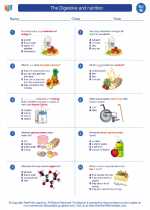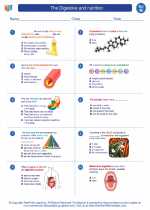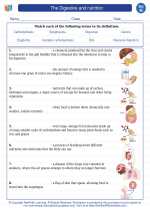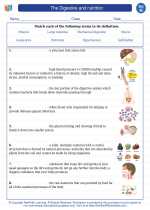Acid-Base Reactions
An acid-base reaction is a type of chemical reaction that occurs between an acid and a base. Acids are substances that can donate protons, while bases are substances that can accept protons. When an acid and a base react, they form a salt and water. This type of reaction is also known as a neutralization reaction because the acidic and basic properties are neutralized.
Key Concepts
- Acids: Acids are substances that have a pH less than 7. They can donate protons to other substances.
- Bases: Bases are substances that have a pH greater than 7. They can accept protons from other substances.
- Neutralization: When an acid and a base react, they neutralize each other's properties, forming a salt and water.
- pH Scale: The pH scale measures the acidity or basicity of a substance. Acids have a pH below 7, while bases have a pH above 7.
Examples of Acid-Base Reactions
Some common examples of acid-base reactions include:
- Hydrochloric acid (HCl) reacting with sodium hydroxide (NaOH) to form sodium chloride (NaCl) and water (H2O).
- Acetic acid (CH3COOH) reacting with sodium bicarbonate (NaHCO3) to form sodium acetate (CH3COONa), carbon dioxide (CO2), and water (H2O).
Study Guide
When studying acid-base reactions, it's important to understand the following:
- Define what an acid is and give examples of common acids.
- Define what a base is and give examples of common bases.
- Explain the concept of neutralization and how it relates to acid-base reactions.
- Understand how to balance chemical equations for acid-base reactions.
- Be able to identify common products of acid-base reactions, such as water and salt.
Remember to practice balancing chemical equations and identifying the products of acid-base reactions to solidify your understanding of this topic.
Good luck with your studies!
[Acid-base Reaction] Related Worksheets and Study Guides:
.◂Science Worksheets and Study Guides Eighth Grade. The Digestive System & Nutrition
Study Guide The Digestive and nutrition
The Digestive and nutrition  Worksheet/Answer key
Worksheet/Answer key The Digestive and nutrition
The Digestive and nutrition  Worksheet/Answer key
Worksheet/Answer key The Digestive and nutrition
The Digestive and nutrition  Worksheet/Answer key
Worksheet/Answer key The Digestive and nutrition
The Digestive and nutrition  Vocabulary/Answer key
Vocabulary/Answer key The Digestive and nutrition
The Digestive and nutrition  Vocabulary/Answer key
Vocabulary/Answer key The Digestive and nutrition
The Digestive and nutrition  Vocabulary/Answer key
Vocabulary/Answer key The Digestive and nutrition
The Digestive and nutrition  Vocabulary/Answer key
Vocabulary/Answer key The Digestive and nutrition
The Digestive and nutrition  Vocabulary/Answer key
Vocabulary/Answer key The Digestive and nutrition
The Digestive and nutrition 

 Worksheet/Answer key
Worksheet/Answer key
 Worksheet/Answer key
Worksheet/Answer key
 Worksheet/Answer key
Worksheet/Answer key
 Vocabulary/Answer key
Vocabulary/Answer key
 Vocabulary/Answer key
Vocabulary/Answer key
 Vocabulary/Answer key
Vocabulary/Answer key
 Vocabulary/Answer key
Vocabulary/Answer key
 Vocabulary/Answer key
Vocabulary/Answer key

The resources above cover the following skills:
Reading Standards for Literacy in Science and Technical Subjects
Craft and Structure
Determine the meaning of symbols, key terms, and other domain-specific words and phrases as they are used in a specific scientific or technical context relevant to grades 6-8 texts and topics.